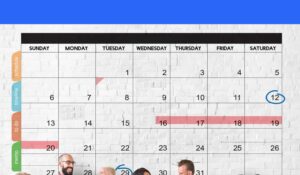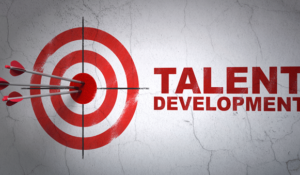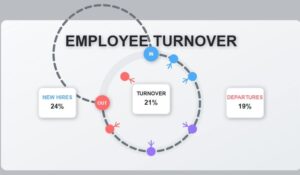The cost of low employee engagement and high turnover can prompt organizations to consider a change in leadership. When problems are rooted in workplace culture, as is often the case, one obvious choice is to bring in someone from the outside. After all, the right outside leader is free from internal politics and can infuse the culture with fresh ideas, a new vision, and the energy needed to institute change.
Still, hiring from the outside isn’t a silver bullet, particularly when a key goal is a change in culture. In my experience, organizations in this situation should keep three critical factors in mind when bringing in new leadership from the outside.
- Recruit people who can create the culture you want
- Incorporate psychographics tools into the recruitment process
- Hire with a full scope of desired leadership qualities in mind
Let’s take a look at each of these points individually.
Recruit People Who Can Create the Culture You Want
A strong cultural match often is the top priority of leadership search teams. You want someone who can fit in, be a good team-player, but if your company’s culture is the problem, why would you want to bring in someone who fits into it? Why bring in a new leader if the culture is going to remain difficult or unproductive? Hiring a new senior executive can be the best way to introduce a cultural shift. The key is to hire a leader whose values are aligned with the cultural change the organization seeks.
Millennials, who will comprise 75% of the workforce by 2025, overwhelmingly prefer to work for organizations whose mission is in line with their personal values on topics such as sustainability, ethical business practices, and the like. Organizations have to be careful to identify leadership candidates who share those values and support them through action – who will walk the talk, as it were.
For example, a newly hired leader at a pharmaceutical company may profess a strong commitment to business ethics, but then institute a sharp price increase for a drug that is in particularly high demand. That leader will likely run into trouble with rank and file workers who joined the company because they want to help improve public health.
Every company has a culture. That culture is either created intentionally, by the leadership team or unintentionally by the strong personalities that occur within the organization. Wise leadership develops a model to set cultural expectations and then intentionally recruits other leaders who will champion that model.1
Incorporate Psychographics Tools into the Interview Process
The study of the lifestyles, personalities, interests, and attitudes of people is called psychographics. By collecting psychographic information on potential hires, employers can analyze how candidates might interact with others.
For example, if I wanted to find out if a candidate is likely to be an overachiever yet collaborative, or driven but ethical, I would design interview questions or online surveys that dig into those issues. According to a recent Gallup article, employers can survey their top performers to glean their opinions and attitudes toward their jobs and use this data to recruit candidates with similar opinions and attitudes.2
Personality tests are also an effective way to increase the likelihood that a candidate is a good match for a company. A 2012 poll conducted by the Society for Human Resource Management found that 71 percent of HR professionals surveyed believe that personality tests can predict job-related behavior and performance.3 I know that ZipRecruiter uses a personality profile to pre-qualify candidates before they even interview, and others are starting to do the same.
Organizations can create a desired personality profile and develop a corresponding battery of questions that measure candidates against the mission, vision, values, and purpose of the company. The better the match, the deeper into the process the candidate goes. Isn’t that more effective than hiring based on hunches and unstructured interview questions?
Hiring for the Full Scope of Leadership
Leadership teams have a responsibility to assess the full range of a candidate’s leadership capabilities. Failing to do so can result in serious problems for the organization. For example, consider the “demanding” candidate who has an impressive portfolio of financial success or big-name clients. While this may seem appealing in some respects, the person may turn out to be what I call a corporate terrorist: someone who is out only for him/herself.
Despite an impressive record on paper, this candidate may not care about other people or the organization’s performance; he or she may focus only on what a position can do to advance his own standing.
I’ve found that many of these candidates tend to be negative, condescending, even angry. They typically come into an organization with the attitude that everything must be changed. The havoc and disruption that they create can be as devastating to your company as a hurricane or tornado going through your town.
It’s a mistake to select individuals based solely on their financial success and productivity, without considering their overall leadership skills. Being a caring and mentoring person with a strong sense of ethics are innate personality traits of truly good leaders. Technical skills, such as financial management, sales development, or programming are also important but should be prioritized along with high emotional IQs.
Conclusion
Your people are your brand. How they interact with each other and with customers is a reflection of the company and their culture and purpose. Reducing turnover and improving engagement must be a top priority for companies struggling in those areas and improve employee engagement. The best approach is to understand what your company needs from a change in leadership, implement ways to find people qualified to do it, and hire the right type of leader to get the job done.
There’s a direct correlation between how well you select and recruit your talent and the impact it has on your company’s culture and brand purpose. There’s no question about it.
About the Author
Allan Steinmetz is the founder and CEO of Inward Strategic Consulting. Allan has over 30 years’ experience in strategy, marketing management, and advertising and communications, having worked for some of the world’s most respected advertising and management consulting firms. Prior to establishing Inward Strategic Consulting, he was a senior vice president and corporate director of marketing for Arthur D. Little, one of the world’s leading management and technology consulting firms. He was responsible for the firm’s brand identity and positioning, business development, strategic awareness, lead generation, advertising, and communications. In 2012, he was named one of the top twenty-five consultants in the United States by Consulting Magazine. In 2017 his firm received an annual award as the first agency of its kind by Enterprise Engagement Alliance at their annual conference and dinner. You can reach him at asteinmetz@inwardconsulting.com
1 https://carterbaldwin.com/top-10-reasons-to-consider-external-candidates/













